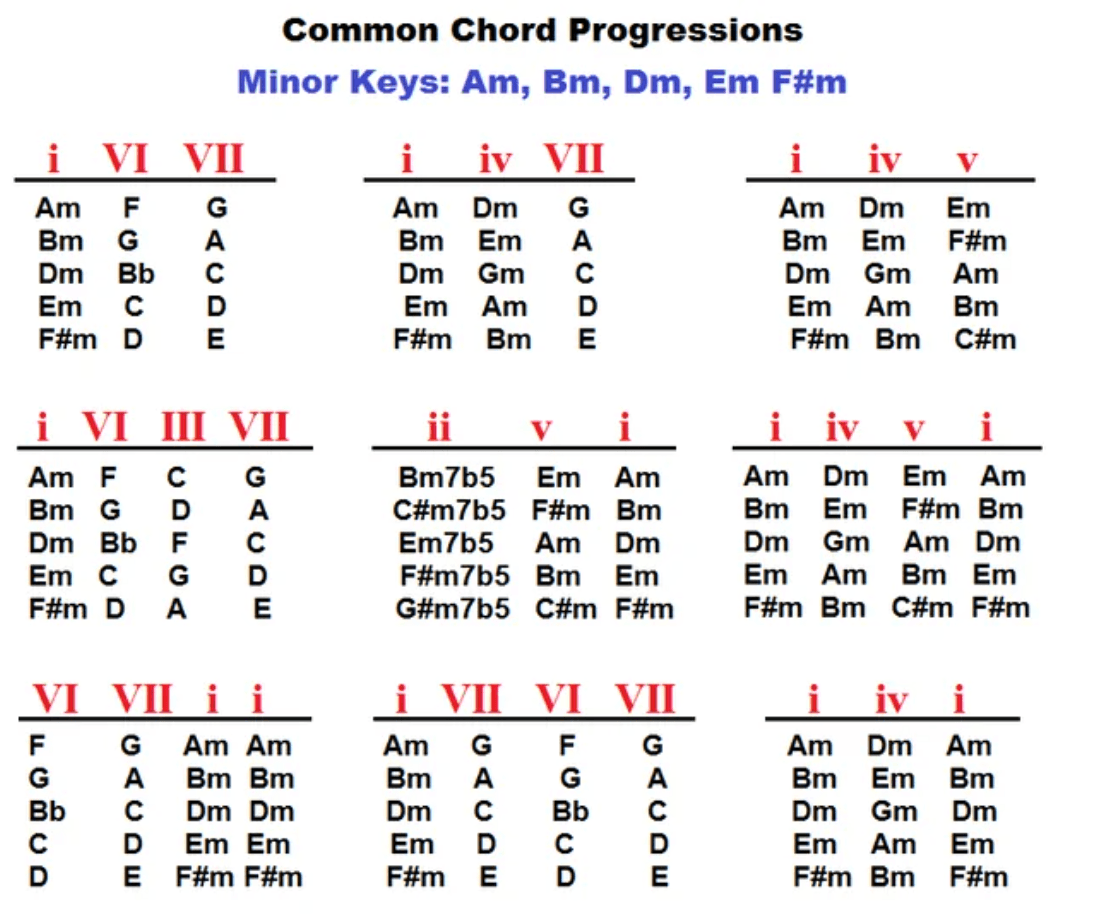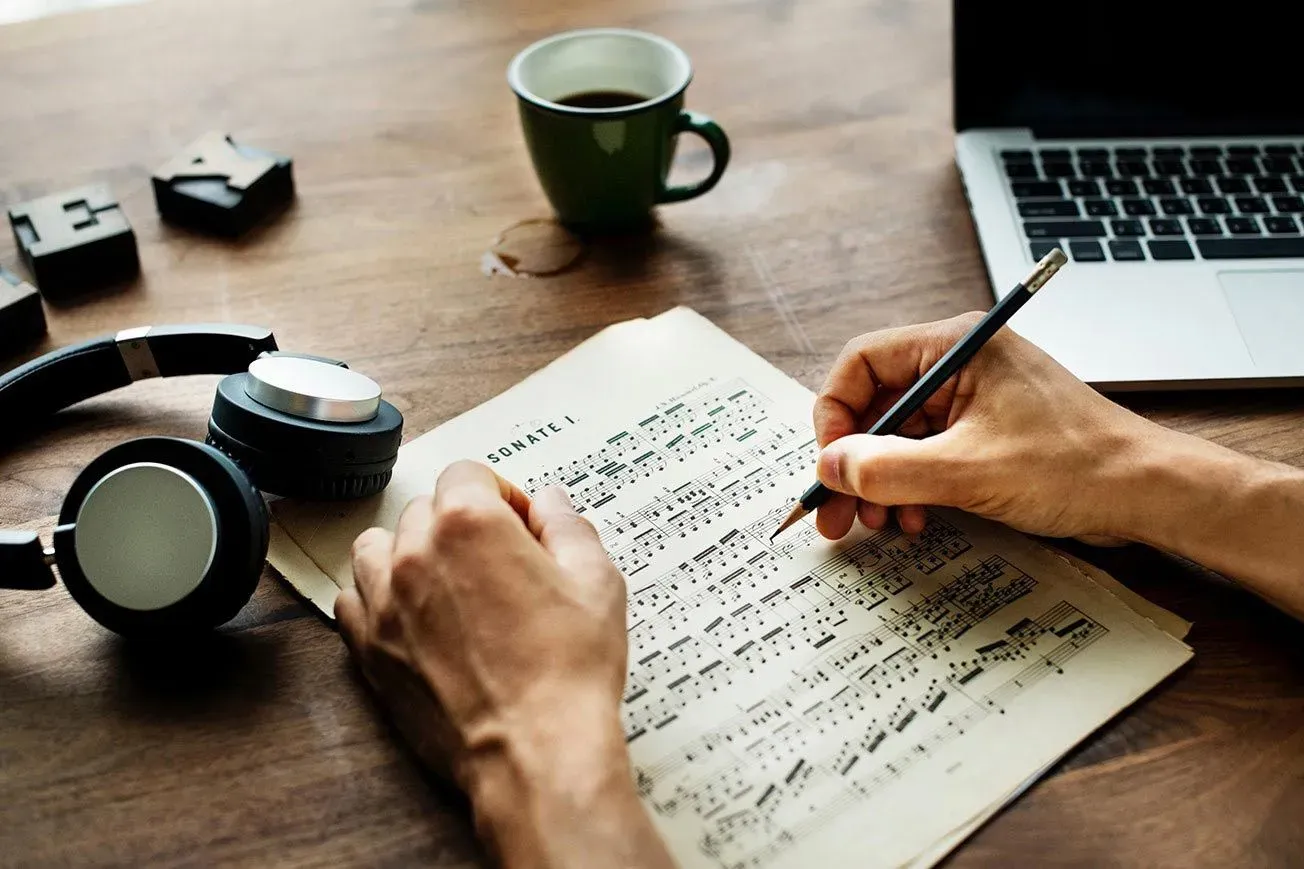In the dynamic realm of music production, creative possibilities are limitless. In this article, we'll explore the top 5 AI music tools in 2023.
Discover how these tools are transforming the music industry, from inspiration to education and marketing!
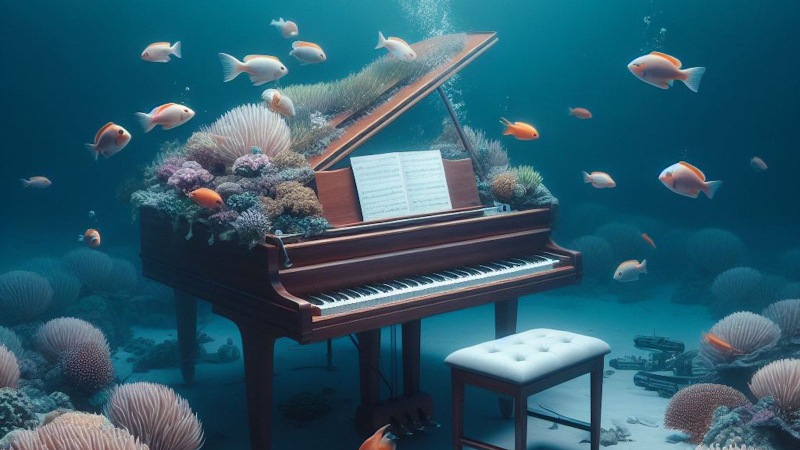
The Evolution of AI in Music
The convergence of artificial intelligence and music isn't a modern occurrence; it finds its roots in the mid-20th century.
It was during this period that the foundational framework for realizing AI's potential in the realm of musical composition was established.
To attain a comprehensive grasp of how AI has progressed in tandem with the constantly changing landscape of the music industry, let's embark on a succinct historical exploration.
The Pioneering Days (1950s-1970s)
In the 1950s, the world witnessed the emergence of computer-generated compositions, marking a significant milestone in the history of music and technology.
Early experiments involved using computers to generate simple musical pieces, opening the door to the realm of AI-assisted creativity.
The Rise of Machine Learning (1980s-1990s)
As the 1980s and 1990s rolled in, AI in music began to gain momentum.
Machine learning algorithms started to analyze vast libraries of musical data, enabling computers to understand musical patterns and structures.
This newfound knowledge paved the way for AI to venture further into the realms of composition and creativity.
Deep Learning and the 21st Century (2000s-Present)
In the 21st century, deep learning technologies revolutionized the AI music landscape.
Neural networks and sophisticated algorithms enabled AI to delve deeper into the nuances of music, leading to unprecedented capabilities:
- Composition and Melody Generation: One of AI's standout contributions to music production lies in its ability to dissect existing compositions and generate entirely new ones. By analyzing vast musical datasets, AI algorithms can create fresh chords, melodies, and harmonies. Musicians can draw inspiration from these generated elements, injecting their compositions with novel ideas and creativity.
- Crafting Compelling Lyrics: Lyricism is the heart and soul of many songs, and AI has stepped up to the plate to assist in this aspect of music creation. AI-powered lyric generation tools can craft verses and choruses that align seamlessly with the theme and mood of the music, saving artists valuable time while maintaining lyrical authenticity.
- Tailored DJ Set Lists: Live performances demand a deep understanding of audience preferences, and AI is up to the task. AI algorithms can curate DJ set lists by analyzing crowd reactions and musical trends, ensuring a seamless and engaging performance that resonates with the audience.
- Empowering Music Marketing: In an era where digital presence is crucial, AI lends a helping hand to musicians in the marketing arena. It provides essential tools such as SEO tags, YouTube descriptions, and Instagram captions that are not only efficient but also tailored to enhance the visibility and reach of musical creations. This allows musicians to focus on their art while AI takes care of the promotional aspects.
The Ongoing Symphony of AI in Music
Today, AI stands as an indispensable pillar of music production, offering an array of tools and capabilities that amplify the creative process.
From generating melodies to crafting lyrics, curating set lists to simplifying marketing efforts, AI has woven itself into the fabric of the music industry.
Musicians and producers have a powerful ally in AI, one that doesn't replace their talent but enhances their ability to push artistic boundaries.
As technology continues to evolve, so does the symphony of AI in music, promising endless possibilities for those who dare to compose the future.
Exploring the Pinnacle of AI Music Tools: Unveiling the Top 5
In the dynamic realm of music production, the seamless fusion of artificial intelligence and human artistic expression has ushered in a transformative age characterized by boundless innovation and boundless creativity.
As we come closer to the end of 2023, an exciting juncture awaits, inviting us to explore and fully harness the capabilities of the foremost 5 AI music tools.
These tools are not just mere conveniences; they represent the vanguards of a musical revolution, offering fresh perspectives and endless possibilities to musicians and creators.
Join us on this enlightening journey as we introduce you to the leading AI music tools of 2023, set to reshape the way artists and musicians navigate their creative endeavors.
1. Empress: Advanced AI Tools
In the dynamic realm of modern music production, Empress stands as a beacon of innovation, integrating both music creation and marketing tools under one umbrella.
This platform utilizes the potential of AI to push the limits of what musicians can accomplish, whether it be within the studio or in the realm of marketability.
Empress's suite of AI-powered generators opens up a world of possibilities for musicians. Whether you're exploring diverse genres or experimenting with unique styles, these generators have your back.
They allow you to create full-length musical compositions that resonate with your artistic vision.
From classical symphonies to contemporary pop hits, Empress's music generators enable you to breathe life into your musical ideas effortlessly.
Features:
- Chord Generator: Simplifies chord progressions, making it accessible for both beginners and seasoned musicians.
- Lyric Generator: Crafts tailored verses and choruses based on specified genres and tones, eliminating writer's block.
- Comprehensive Music Generators: Create full-length pieces across diverse genres and styles, ensuring resonance with the artist's vision.
- AI-Driven Marketing Tools: Provides real-time insights into prevailing music trends, enabling artists to enhance their online presence and connect with their target audience seamlessly.
- Integrated Distribution Platform: Allows musicians to promote, share, and distribute their creations, leveraging Empress's wide network and partnerships.
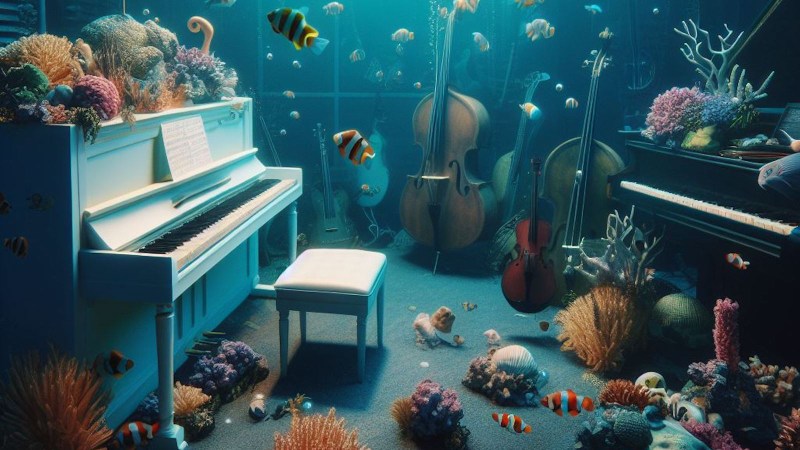
2. Magenta: Redefining Creative Processes with AI
Initiated by Google in 2016, Magenta isn't just an AI music tool; it's a testament to the potential of machine learning in the realms of art and music.
Magenta represents a fusion of art and technology, reshaping the creative process in unprecedented ways.
Magenta offers a comprehensive creative suite that comprises various tools, models, and research resources.These tools are designed to fuel creative prototyping, enabling artists to explore different approaches.
Whether you're a musician, visual artist, or interdisciplinary creator, Magenta provides a rich array of resources that empower you to explore new frontiers in art and music.
Features:
- TensorFlow Integration: Uses TensorFlow to experiment with music and art generation.
- Comprehensive Creative Suite: Offers tools, models, and research for creative prototyping.
Real-time MIDI Capabilities: Integrates with MIDI interfaces for real-time interactions.
3. Soundful: Quality and AI Innovation
Soundful emerges as a visionary platform with a mission dedicated to democratizing music creation and distribution.
What truly distinguishes Soundful within the sphere of AI-driven music tools is its unwavering dedication to elevating the standard of music quality while ensuring accessibility to a wider audience. Join us as we delve into how Soundful fulfills this mission.
It places a strong emphasis on delivering natural and realistic instrument sounds. Because of this Soundful's AI algorithms are meticulously crafted to capture the essence of each instrument.
The result is a sonic experience that resonates with authenticity, allowing musicians to create music that sounds as if it were performed by live musicians.
Features:
- Natural Instrumental Authenticity: Focus on enhancing natural and realistic instrument sounds.
- Dynamic AI Adaptability: AI algorithms adapt to various musical styles and dynamics.
- Inclusive Design: Interactive tools for both beginners and professionals.
4. Jukedeck: Where AI Meets Musical Mastery
Jukedeck is a trailblazer in the realm of AI-driven music composition, and it shares its foundational neural network approach with Amper, another notable player in the field.
It represents a fusion of AI innovation and musical mastery, where AI composers take the reins, and musical magic unfolds.
Jukedeck's neural networks are the heart of its creative process. These networks sift through a vast library of music data, honing their composition skills to perfection.
The result is a collection of AI-generated compositions that are not only sonically appealing but also meticulously crafted with precision.
Whether you're in need of background music for a video project, an original track for your podcast, or a unique score for your indie game, Jukedeck provides you with a treasure trove of diverse, AI-crafted tracks that cater to your specific needs.
Features:
- Data-Driven Compositions: Leveraging neural networks, Jukedeck sifts through a plethora of music data, honing its composition skills to perfection.
- User-Centric Customizations: Every track birthed can be tailored in tempo and length, resonating with users' unique requirements.
- Free Music Creation: Jukedeck stands out by offering a model where AI takes complete creative control, providing users with a goldmine of diverse tracks at no cost.
5. Musenet: Adaptive Genius Across Diverse Music Genres
Musenet is not merely an AI music tool; it's a pioneering neural network meticulously designed to curate musical compositions spanning up to 4 minutes, weaving in 10 distinct instruments.
Musenet also showcases its prowess by crafting melodies that incorporate up to ten different instruments, delivering a rich and multifaceted auditory experience.
Whether you're seeking the timeless elegance of a classical symphony or the vibrant energy of a modern pop composition, Musenet has the ability to harmoniously blend diverse instruments into a cohesive musical tapestry.
Features:
- Diverse Instrumentation: Musenet showcases its prowess by crafting melodies with up to 10 instruments, delivering a multifaceted auditory experience.
- Versatile Styles: From timeless classics by Mozart to contemporary legends like the Beatles, Musenet melds an array of musical genres with finesse.
- Deep Learning Foundations: Underpinned by GPT-2's robust framework, Musenet capitalizes on the potency of transformer models, promising intricate and harmonious compositions.
AI Music Tools: Enhancing Creative Endeavors
As the music industry continues to evolve, AI music tools have emerged not as substitutes for musicians but as valuable partners in their creative journey.
These tools are instrumental in shaping the future of music by offering a multitude of benefits and opportunities:
Inspiration: Breaking Creative Barriers
One of the most significant contributions of AI music tools lies in their ability to ignite inspiration.
Musicians often face the daunting challenge of writer's block, where creativity seems to come to a standstill.
AI tools, armed with vast databases of music from various genres, can generate novel chords, melodies, and harmonies.
These generated elements serve as a wellspring of fresh ideas, allowing artists to break through creative barriers and explore uncharted musical territories.
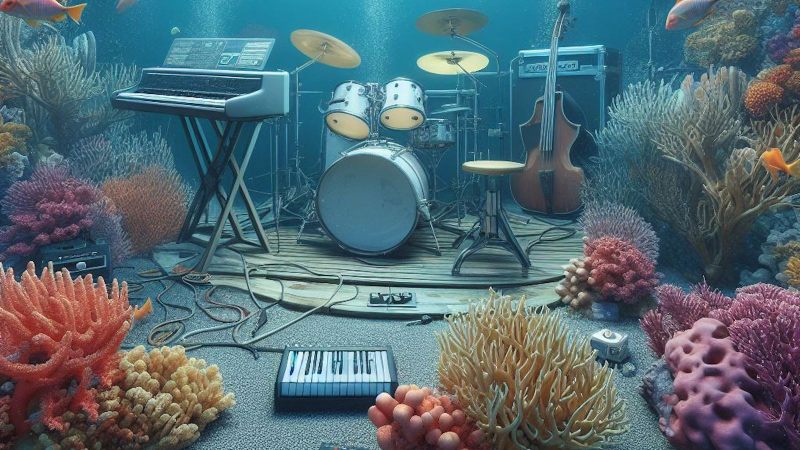
Music Education: Learning and Mastery
For aspiring musicians and students of music, AI-generated compositions serve as invaluable learning resources.
AI can dissect and analyze complex musical techniques and styles, providing learners with hands-on opportunities to understand and practice various facets of music.
Whether it's classical compositions, jazz improvisations, or contemporary pop arrangements, AI music tools offer a dynamic platform for music education and skill development.
Music Marketing: Simplifying Promotion
In an era where marketing plays a pivotal role in a musician's success, AI tools offer a helping hand.
From generating SEO-friendly tags that improve discoverability to crafting engaging YouTube descriptions and Instagram captions, AI streamlines the music marketing process.
Musicians can now focus their energy on their craft, confident that AI is optimizing their online presence and ensuring their music reaches a wider audience.
Collaboration: Fostering Creative Synergy
AI's role in music isn't limited to solo endeavors; it extends to collaborative projects as well. AI-generated ideas can serve as a solid foundation for collaborative efforts among musicians.
These ideas spark creativity, serving as starting points that musicians can collectively build upon.
Whether it's a band working on a new track or a producer collaborating with vocalists, AI fosters creative synergy, enabling musicians to explore uncharted sonic landscapes together.
Empress: Your Gateway to Musical Innovation
Among the top AI music tools of 2023, Empress stands out as a comprehensive solution for musicians.
From generating captivating melodies to crafting SEO-friendly marketing content, Empress has your back throughout your musical journey!
FAQs: AI Music Tools
Q1: How do AI music tools work?
AI music tools work by analyzing vast datasets of existing music to understand patterns and styles. They use this knowledge to generate music, lyrics, or other creative elements based on user inputs and preferences.
Q2: Do AI music tools replace human creativity?
No, AI tools complement human creativity by offering fresh ideas and inspiration. Musicians remain at the helm of creative decisions, while AI assists in the creative process.
Q3: Are AI music tools accessible to everyone?
Yes, most AI music tools are designed to be user-friendly, allowing both musicians and non-musicians to harness their creative potential.
Q4: Can AI tools help with copyright issues in music?
AI tools often generate original compositions, reducing the risk of copyright infringement. However, it's essential to understand copyright laws and use AI-generated content responsibly.
Q5: What's the role of AI in live music performances?
AI can assist in live performances by generating setlists, adapting music to the audience's mood, and even creating real-time remixes, enhancing the overall experience.
Follow the future of music with Empress. Check out our blog to learn how you can effectively use these AI music tools.
